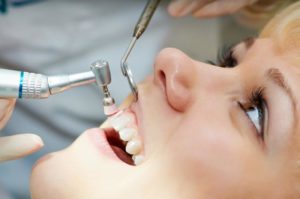In recent years, a growing amount of research has found compelling links between an individual’s oral health and his or her risk of developing a range of chronic, long-term illnesses that include heart disease, Alzheimer’s disease, diabetes, obesity, stroke, and cancer. These studies have shown that by maintaining and improving your oral health, you can successfully lower your risk for these and other chronic illnesses.
The Caries disease (tooth decay) and Periodontitis (gum/bone disease) rank as the two largest threats to your long-term oral health. By practicing quality preventive dental care at home you can protect your mouth from these common oral health problems and have a vastly improved chance to enjoy a lifetime of strong teeth and gums. Quality at-home dental care includes:
- Brushing twice daily. The American Dental Association recommends brushing at least twice a day for no less than two minutes. The best times to brush are in the morning after eating breakfast and again right before bed. You could also consider brushing after lunch to provide your teeth with the best protection against decay.
- Floss daily. Many oral health experts consider flossing as more important than brushing when it comes to protecting the long-term health of your teeth and gums. Flossing helps remove bacteria and lingering food particles from areas of your mouth a toothbrush just cannot reach. Make sure to floss at least once daily to lower your risk of gingivitis (gum inflammation) and periodontitis.
- Eat healthy foods. Just as your body needs nutrient-rich foods to continue to function properly, your teeth and gums use those same nutrients to stay strong and healthy. Whole grains, fruits and vegetables, and a moderate amount of dairy products are especially important for a healthy smile. Try to avoid foods that contain a lot of sugar (candy, soda-pop, energy drinks, fruit juice, etc.) Sugar is easily converted by natural oral bacteria into erosive acids, which can quickly cause cavities and inflame the soft tissues in the mouth..
Cleanings
 While practicing quality oral hygiene at home plays a vital part in protecting your long-term oral health, it is still essential to visit the dentist regularly. Regular dental exams and cleanings provide our staff at Silver Falls Family Dental Care with the opportunity to monitor, protect and improve your oral health.
While practicing quality oral hygiene at home plays a vital part in protecting your long-term oral health, it is still essential to visit the dentist regularly. Regular dental exams and cleanings provide our staff at Silver Falls Family Dental Care with the opportunity to monitor, protect and improve your oral health.
During your initial dental exam, Dr. Pyper’s staff will take a full-mouth series of x-rays to determine if any potential problems present a risk to your immediate and/or long-term oral health. The earlier Dr. Pyper can identify an oral health issue, such as tooth decay, bone loss, or gum disease, the more likely he can easily treat and correct the problem. Early detection is the key to improving your oral health without the need for potentially complicated and expensive procedures that may be required to treat advanced problems.
Silverton Oregon dentist Dr. Pyper will also perform an oral cancer screening and TMJ evaluation as part of your comprehensive dental exam. While the number of oral cancer cases diagnosed each year is significantly less than many more common forms of the disease, the survival rate of oral cancer is significantly lower, as well. The low survival rate of oral cancer is primarily due to the late date of diagnosis many patients with the disease receive. Like most forms of cancer, the earlier the detection of the disease, the more likely it is for a patient to make a full recovery. Regular oral cancer screenings are vital to your health and well-being, and just one more reason why it’s never a good idea to avoid regular visits to the dentist.
Dental plaque, a sticky bio-film comprised of harmful oral bacteria and food particles, develops on teeth within minutes after eating. When plaque is allowed to remain on the surface of your teeth for an extended period of time, it develops into calculus (or tartar), a hard, yellowish, chalk-like substance that can cause multiple problems for your teeth and gums. Calculus can only be safely removed during a professional cleaning, which we routinely provide at our Silverton dental office. Allowing tartar to remain on your teeth and along the gum line dramatically increases your risk of tooth decay and gum disease. When patients come in for a dental cleaning, they provide our staff of compassionate and meticulous dental hygienists with the opportunity to clean unsightly stains and hard, crusty calculus deposits from the teeth, restoring them to their natural shine and leaving them feeling slick, smooth and squeaky clean. Make sure your teeth and gums remain healthy and strong, schedule your next dental exam and cleaning today!
Dental Sealants
 For younger patients, the manual dexterity required to adequately brush and floss doesn’t develop until later in life. Unfortunately, an inability to adequately brush and floss allows dental plaque the chance to cause some significant issues with your child’s teeth. This is particularly concerning in those big molar teeth in the very back. These teeth are hard to reach and frequently have naturally deep and narrow grooves, creating a very high risk for tooth decay. A thin, paint-like resin that literally “seals” away the surface of a tooth, dental sealants are effectively applied to those big molars where they prevent plaque from lodging in those deep pits and fissures and make the teeth much easier to clean and maintain. Dental sealants are very durable, and can last several years before a reapplication is required.
For younger patients, the manual dexterity required to adequately brush and floss doesn’t develop until later in life. Unfortunately, an inability to adequately brush and floss allows dental plaque the chance to cause some significant issues with your child’s teeth. This is particularly concerning in those big molar teeth in the very back. These teeth are hard to reach and frequently have naturally deep and narrow grooves, creating a very high risk for tooth decay. A thin, paint-like resin that literally “seals” away the surface of a tooth, dental sealants are effectively applied to those big molars where they prevent plaque from lodging in those deep pits and fissures and make the teeth much easier to clean and maintain. Dental sealants are very durable, and can last several years before a reapplication is required.
Fluoride Treatments
 Dr. Pyper may decide that additional fluoride treatments should be part of your overall dental care, particularly with children. Fluoride treatments help to prevent the development of cavities, remineralize teeth and make your teeth more resistant to erosion from acids produced by oral bacteria. Studies have convincingly shown that the use of topical fluoride – found in oral rinses, toothpastes and of course, in-office fluoride treatments – helps slow active tooth decay and effectively makes teeth more resistant to new decay.
Dr. Pyper may decide that additional fluoride treatments should be part of your overall dental care, particularly with children. Fluoride treatments help to prevent the development of cavities, remineralize teeth and make your teeth more resistant to erosion from acids produced by oral bacteria. Studies have convincingly shown that the use of topical fluoride – found in oral rinses, toothpastes and of course, in-office fluoride treatments – helps slow active tooth decay and effectively makes teeth more resistant to new decay.
